This story is brought to you by the direct support of our VIP members. If you're not a member yet, please consider becoming a Townhall VIP member.
TAIPEI, Taiwan — It's the turn of events most everyone except Xi Jinping wants to avoid: a Chinese invasion of Taiwan. Significant taxpayer funding, diplomatic efforts, and military training from the United States have sought to achieve effective deterrence, but Biden's weakness on the world stage and the prospect of a second Trump term combined with Xi Jinping's empire-restoring aspirations have made the timetable more difficult to read.
Speaking with House Foreign Affairs Committee Chairman Michael McCaul (R-TX) on the sidelines of his bipartisan delegation's meetings with officials in Taiwan, Townhall got a better idea of what would happen if a feared Chinese invasion of Taiwan becomes a reality, including what McCaul said is the "ultimate nightmare scenario."
First, McCaul offered some reasons why this nightmare is an increasingly looming threat not only for Taiwan, but for the global economy along with the United States' national security and global interests.
"This administration's policy of weakness has invited aggression and conflict and war," McCaul said of President Biden and his cabinet. "You had Afghanistan, months after that we saw the Russian Federation moving into Ukraine, then the Ayatollah lighting up the Middle East and Israel, and now this could be the next shoe to drop," he said of escalating tensions between Taiwan and China.
"Could," being the imperative word. "Everything we're doing now is deterrence to ensure that shoe doesn't drop," McCaul emphasized to Townhall. "We're already in two hot wars, another one is a very significant burden to deal with," he noted, referring to U.S. support for Ukraine against Russia and for Israel against Iran and its proxies. "I always think, going back to Churchill and Chamberlain, weakness invites aggression, appeasement never works, and this administration has time after time been projecting weakness."
"Putin saw that after Afghanistan and decided hey, this is my time," McCaul said of Russia's invasion of Ukraine. He also noted the similarities between Putin and Chairman Xi. "They're both in their 70s, they both have a legacy [to frame], and they only have so much time left."
Recommended
So far, Biden's efforts to deter Chinese harassment of Taiwan haven't worked. Xi and the CCP have demonstrated a willingness to upset the status quo in the Taiwan Strait with escalating military drills around Taiwan, including just before the U.S. delegation arrived on the island. "This exercise [China] pulled the other day, it's a noose around the neck," McCaul told Townhall.
So when does McCaul anticipate an invasion if this nightmare — made likelier by Biden — becomes a reality?
"Some say 2027," McCaul said, referring to Xi's previously set deadline for his military to be ready for an operation to take Taiwan by force. Still, "it depends on how Xi looks at it."
Notably, due to a multi-billion-dollar backlog in filling orders for U.S. weapons purchased by Taiwan, "our weapons aren't all in, and [Xi] knows that," McCaul said. "If he waits, Taiwan just gets stronger." That is, the longer Xi waits to invade, the more well-armed Taiwan will be. There's also a chance Xi views a potential invasion of Taiwan as means to create "a diversion from his own economy that's not doing so well."
Ahead of Russia's invasion of Ukraine and Iran's direct attack on Israel, Biden told Moscow and Tehran "don't." Townhall asked McCaul whether he thinks the same warning from Biden to Xi if an invasion appears imminent would be successful. "No," was his answer.
"I think he's viewed as a paper tiger," McCaul said of China's impression of the American president. "Xi and Putin come from a different world, and they only understand strength and power — they view Biden as a feeble, weak president," he continued.
"That's why I worry about the timetable being accelerated because if they think Trump's going to win — I mean he scares them — that was the best deterrent really," McCaul emphasized of the former president-turned-2024 nominee. "He was deterrence" against bad actors such as Putin and Xi, McCaul explained. "And scared them, quite frankly. You want your enemies to fear you. They don't fear Biden, and I think that's why the acceleration of the timetable could happen if it looks like Trump may win," McCaul said.
Assessing the way a potential Chinese invasion of Taiwan would occur, McCaul told Townhall it would "happen very quickly," likely with little to no formal warning based on the CCP's failure to give required notice of its recent military drills encircling Taiwan — a violation of the United Nations charter.
The potential of a Chinese attack is also something that Taiwan, the United States, and its partners are "not...fully prepared for" at present, McCaul said. "You need forward pre-positioned assets, otherwise you can't respond."
"We'll [eventually] have nine forward operating bases in the Philippines — we have five now, we'll have four more — Japan I think is fully engaged now, I think AUKUS [is] now, South Korea still worries about North Korea but they'll probably come around," McCaul assessed of where deterrence — and potentially a future defensive operation — is being developed.
With the primary goal of preventing an invasion, McCaul said the U.S. is already "pre-position[ing] assets and starting to get the Japanese and South Koreans and the Philippines and all that together along with the assets to deter and prevent [a Chinese invasion]," McCaul said.
The "most important assets" for Taiwan's deterrence are "maritime assets," McCaul emphasized. That includes sea mines, small submarines, some types of aerial drones, and Harpoon anti-ship missiles. If China is able to reach Taiwan's shores, then "you're done," he warned. Those types of weapons and platforms are "critically important" to deterrence, as is ensuring U.S. Indo-Pacific Command (INDOPACOM) is in the region.
Will such preparations be enough?
"This thing could happen so fast," McCaul reiterated, explaining he has been briefed on China's plans for a potential invasion. "A blockade, a massive artillery assault...they would be overloaded," McCaul warned of Taiwan's ability to respond. "The island would get blown up," he continued, "and then a massive cyberattack would shut down the island — maybe they hit the West Coast of the United States [with a cyberattack] to say, 'Hey, you don't want to get involved in this,'" said McCaul. "That's the ultimate nightmare scenario."
American infrastructure has proven increasingly vulnerable to cyberattacks, and few state and local officials have conducted stress tests simulating the kind of attack McCaul described.
"How do you respond to a massive artillery [assault], maritime invasion, amphibious landing that could take over the island within, if not a matter of hours, days?" McCaul questioned.
"It could happen so fast that then we're seen as the ones going in more as the aggressor to get the blockade off — and what are we rescuing at that point? That's why the deterrence is important," he emphasized. If deterrence fails — as Biden's past attempts have repeatedly, leading to multiple hot wars in which the U.S. is now involved — the amount of time it takes to respond to a Chinese invasion of Taiwan "is critical," McCaul added.
Still, a larger question remains: what would the U.S. response be under Biden?
"The president would have to make a very serious decision about whether to come to Taiwan's defense," McCaul said of the immediate action that will be required of Biden in the event of an invasion.
If, as Biden has said — despite his administration's attempts to walk back repeated statements — the U.S. military is committed to defending Taiwan against China, then the president would "immediately call the Secretary [of Defense] and say, 'Ok, commit our troops."
"Under the War Powers Act, [Biden] would have to notify my committee and the Congress, and then we, in turn, would have to proceed with either an [Authorization for Use of Military Force] or declaration of war" to continue the United States' military involvement. "We'd have a debate in Congress, and the American people would have to decide: Do we want to sustain this?" McCaul explained.
At the same time the U.S. — both Biden and Congress — are deciding what actions to take, the world will be watching to see who takes Xi's side or assists in the operation.
"Right now," McCaul said, "Chairman Xi is talking to Putin about invading Taiwan." The Ayatollah in Iran is also, to the extent he can be, expected to support China. In addition, "Kim Jong Un has some artillery power," reminded McCaul. "He's got rockets he can fire into the region."
All together this "unholy alliance" involved in the hot wars in Ukraine and the Middle East and looking at starting a third means "you're looking at war on an almost global scale," McCaul emphasized. "That's what we're trying to prevent."
Townhall noted to McCaul that a war on a "global scale" sounds like World War III. "It would be," he responded. That possibility, McCaul adds, is what keeps him up at night.

















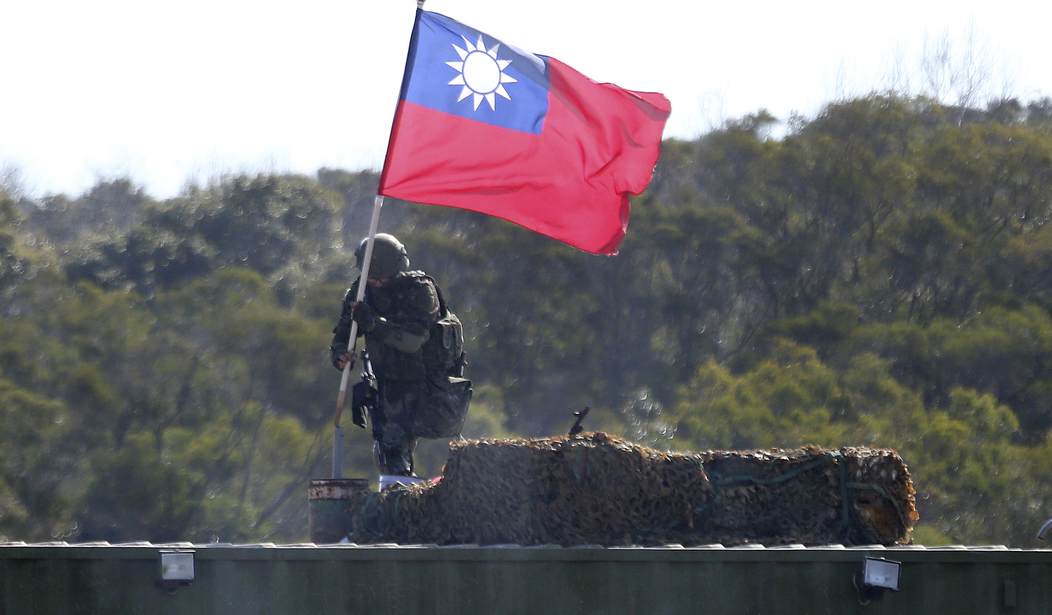


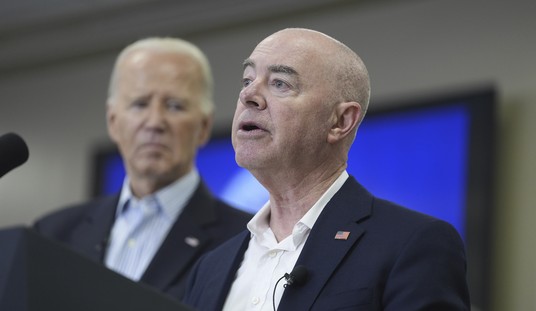
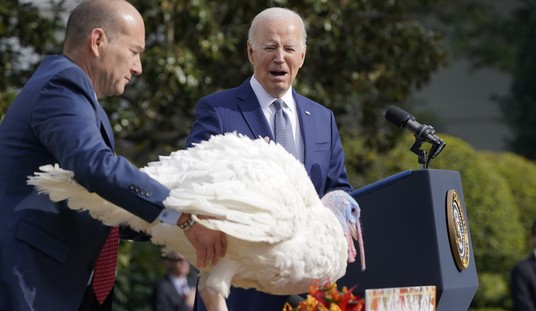

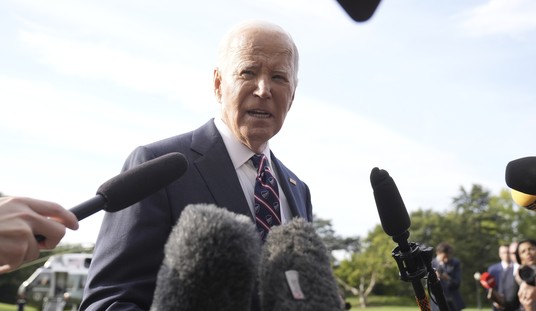
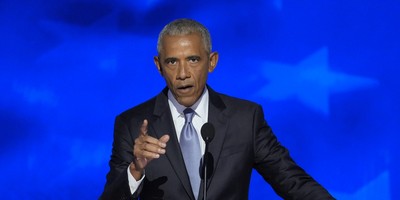
Join the conversation as a VIP Member